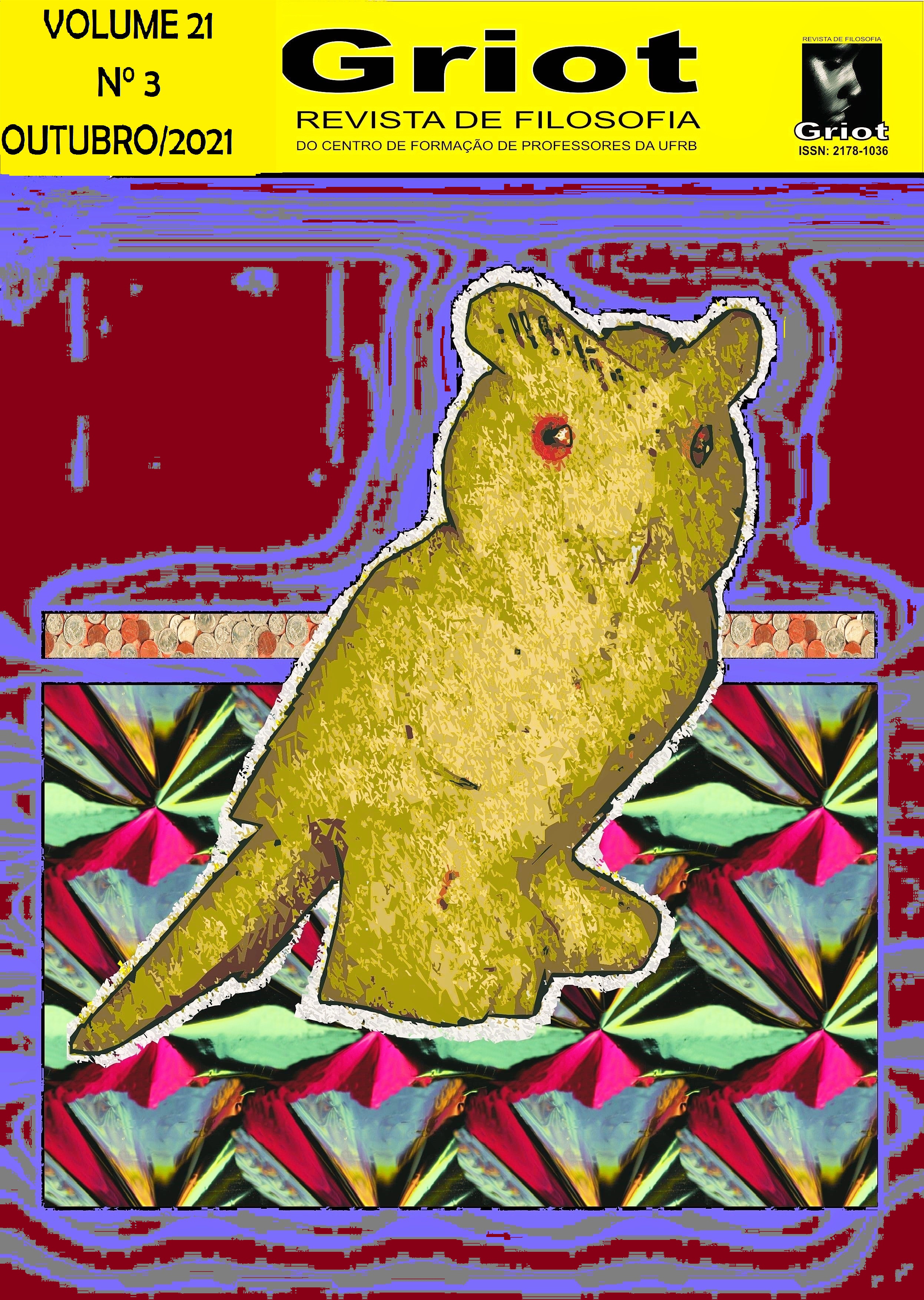Ethics and solidarity: a pandemic lesson
DOI:
https://doi.org/10.31977/grirfi.v21i3.2457Keywords:
Solidarity; Ethics; Pandemic; Humanity.Abstract
The paper examines a possible ethics for the current scenario, in order to bring human beings closer together and awaken in them a feeling of solidarity. For such an examination, at first, theories such as the utilitarianism reviewed by Rawls are questioned. It searches for a valid criterion for all participants of a certain universalism or for a real and non-exclusive “us”. The call for solidarity is proposed as a way of uniting people, as opposed to selfishness. Then solidarity is defended, according to Richard Rorty. This philosopher affirms the need for an agreement among the members of society, because only then would there be a real “we”. Next, there is the question about how to make people more supportive, but without resorting to the traditional metaphysical perspective on humanity: there is a bet on the existence of shared characteristics that lead to democratic equality, however, respecting the differences of each one. It is still questioned what would lead the richest to sympathize with the poorest, observing the proposals made by Rorty about raising awareness, presenting the risk of poverty to the rich and appealing to the feeling of humanity. Finally, Rortyan egalitarianism is considered, according to which solidarity is beyond rationality. It would be historically constituted and based on the relationship with the other, on the common feeling of vulnerability, crucial to society in times of pandemic.
Downloads
References
AGOSTINHO. Solilóquios; A vida feliz. São Paulo: Paulus, 2007. (Coleção Patrística)
ARENDT, Hannah. A condição humana. Brasília: Forense Universitária, 2020.
ARISTÓTELES. Ética a Nicômaco. In: Aristóteles. São Paulo: Abril Cultural, 1973. v. 2. (Os pensadores)
CÍCERO, Marco Túlio. De Officis. London; New York: Loeb Classical Library, 1913.
COMTE-SPONVILLE, André. Pequeno Tratado das Grandes Virtudes. São Paulo: Martins Fontes, 1997.
DEWEY, John. Human Nature and Conduct. In: The Middle Works of John Dewey. Cabondale, Illinois, Southern Illinois: University Press, 1993. v. 14.
FROMM, Erich. Conceito Marxista de Homem. Rio de Janeiro: Zahar, 1969.
GLADDEN, Matthew E. Who Will Be the Members of Society 5.0? Towards an Anthropology of Technologically Posthumanized Future Societies. Soc. Sci. 2019, 8, 148. Disponível em: https://www.mdpi.com/journal/socsci. Acesso em: 28 jul. 2020.
HOBBES, Thomas. Leviatã ou matéria, forma e poder de uma república eclesiástica e civil. São Paulo: Martins Fontes, 2003.
HONNEFELDER, Ludger. A lei natural de Tomás de Aquino como princípio da razão prática e a segunda escolástica. Teocomunicação. Porto Alegre, v. 40, n. 3, p. 324-337, set./dez. 2010. Disponível em: https://revistaseletronicas.pucrs.br/ojs/index.php/teo/article/view/8155/5842. Acesso em: 01 fev. 2021.
HOTTOIS, Gilbert. De la renaissance à la postmodernité. Une historie de la philosophia moderne contemporaine. Paris; Bruxelles: De Boeck et Larcier, 1997.
KANT, Immanuel. Fundamentação da Metafísica dos Costumes. Lisboa: Edições 70, 2005.
LADRIERE, Jean. L’espérance de la raison. Louvain-Paris: Editions Peeters, 2004.
LA CRISE du Covid-19 requiert une solidarité mondiale sans précédent.
Le Monde, Paris, 14 abr. 2020. Disponível em: https://www.lemonde.fr/idees/article/2020/04/14/la-crise-du-covid-19-requiert-une-solidarite-mondiale-sans-precedent_6036561_3232.html. Acesso em: 14 abr. 2021.
NUSSBAUM, Martha Craven. Upheavals of thought: The Intellegence of Emotions. Cambridge: Cambridge University Press, 2008.
NUSSBAUM, Martha Craven. Sem fins lucrativos: Por que a democracia precisa das humanidades. São Paulo: Martins Fontes, 2015.
OVÍDIO. Metamorfoses. São Paulo: Editora 34, 2017.
PÚBLIO OVÍDIO NASO. Les Metamorphoses. Paris: Gallimard, 1992.
PARMET, Wendy E. Populations, Public Health, and the Law. Washington, D.C.: Georgetown University Press, 2008.
PINKER, Steven. O novo iluminismo. Em defesa da razão, da razão e do iluminismo. 3. ed. São Paulo: Companhia das Letras, 2018.
PUBLIUS TERENTIUS AFER. Heaautontimorumenos. New York: Charles Scribner's, 1985. Disponível em: rchive.org/stream/selftormentorhea00rico/selftormentorhea00rico_djvu.txt. Acesso em: 20 fev. 2021.
RAWLS, John. Teoria da Justiça. Brasília: Editora UNB,1981.
RONDEL, David. Pragmatist Egalitarianism. Oxford: Oxford University Press, 2017.
RORTY, Richard. Contigence, Ironie & Solidarité. Paris: Armand Colin, 1989.
RORTY, Richard. Contingência, ironia e solidariedade. Lisboa: Presença, 1994.
RORTY, Richard. Por uma moral sem dogmas. Curitiba: Juruá, 2009.
RORTY, Richard. Une éthique sans obligations universelle in L’espoir au lieu du savoir. Une Introduction au pragmatismo. Paris: Albin Michel, 1992.
RORTY, Richard. Who are we? Moral Universalism and Economic Triage. Diogenes. 44:173 (spring 1996): 5-15. Diponível em: http://www.kyoolee.net/Who_Are_We_-_Moral_Universalism_and_Economic_Triage_-_Richard_Rorty.pdf. Acesso em: 09 mai. 2021.
SARTRE, Jean-Paul. O Existencialismo é um Humanismo. Paris: Les Éditions Nagel, 1970.
SCHELER, Max. Esencia y Formas de la Simpatia. Buenos Aires, Losada, 1957.
STEELE, Richard. In.: The Spectator. London: George Rutledge and Sons, Limited, 1891. v. 3. Disponível em: https://www.gutenberg.org/files/12030/12030h/SV3/Spectator3.html#section502. Acesso em: 21 fev. 2021.
SUMPTER, David. Dominados pelos números: Do Facebook e Google às fake news - Os algoritmos que controlam nossa vida. Rio de Janeiro: Bertrand Brasil, 2019.
TOMÁS DE AQUINO. Suma Teológica. Porto Alegre: Sulina, 1980. v. 2.
ULPIANO. In.: JUSTINIAN. The Digest of Justinian. Philadelphia: University of Pennsylvania Press, 1985.
WILSON, Edward Osborne. A Unidade do Conheimento-Consiliência. Rio de Janeiro: Campus, 1998.
Downloads
Published
How to Cite
Issue
Section
License
Copyright (c) 2021 Juliana Santana, Alvino Moser, José Lauro Martins

This work is licensed under a Creative Commons Attribution 4.0 International License.
The authors who publish in Griot: Revista de Filosofia maintain the copyright and grant the magazine the right of first publication, with the work simultaneously licensed under the Creative Commons Attribution 4.0 International License, allowing sharing and adaptation, even for commercial purposes, with due recognition of authorship and initial publication in this journal. Read more...









































































